|
When you hear the word “vocation” what comes to mind?
In my last year of college, vocation seemed like a puzzle to be solved. I put a lot of pressure on myself to figure out “what should I do with my life.” I met with a spiritual director and weighed several options, agonizing over how I would know which was the right choice. Although my spiritual director and many other people in my life tried to tell me that I didn’t have to figure out the entirety of my life just yet, I wasn’t listening. I had a very narrow view of vocation as something to be discerned once and only once. I thought, if you’ve done it right, you stick with your choice for your whole life. I imagined that God had my life mapped out for me and there was a very definite direction I should take; I just needed to figure out which it was. Now, 11 years later, I realize just how much God’s grace has been at work in me in so many ways—especially in broadening my understanding of vocation. I’ve come to really appreciate that discerning one’s vocation is not like completing a task at which we can excel or fail. It’s not a question with a single right answer. In fact, God’s plan for us is none other than to be holy, and to do so in ways specific to us, “to reflect and embody, at a specific moment in history, a certain aspect of the Gospel” (Gaudete et Exsultate, 19). The Second Vatican Council’s Dogmatic Constitution on the Church speaks of this universal and personal call to holiness by saying that “all the faithful, whatever their condition or state, are called by the Lord – each in his or her own way – to that perfect holiness by which the Father himself is perfect” (Lumen Gentium, 11). Each and every one of us has this fundamental vocation, the one that underlies every other particular way in which God calls us to holiness. Holiness isn’t lived out in a single grand way possible for only a select few; “We are all called to be holy by living our lives with love and by bearing witness in everything we do, wherever we find ourselves” (Gaudete et Exsultate, 14). In Gaudete et Exsultate, Pope Francis issues a powerful summons: “You too need to see the entirety of your life as a mission” (GE, 23). With this broader view of vocation, I can more readily recognize the multitude of ways in which God has drawn me to himself throughout the course of my life. I can discern how I am being called to holiness in this moment and reflect on how my response in the here and now is part of my greater life’s mission. Now I understand vocation as more than a single call. It is, rather, living our lives in a constant awareness of and responsiveness to the promptings of the Lord, who draws us to himself. Vocation is not inward looking; it draws us outward to God and neighbor. This redirected gaze allows us to recognize and receive with gratitude the gifts we are given so that we can more freely and truly make a gift of ourselves. Such self-emptying love is what it means to be Christ-like, to be holy. It forces us to reframe our questions. Instead of asking, “What do I want to be?” or “What do I want to do with my life?” (as I kept asking myself in college), we can prayerfully discern “How is God calling me to make a gift of myself?” This certainly applies to my state in life, whether I am called to give of myself in marriage or religious life. But I also respond to this call to self-gift by carrying out my work with integrity and skill in the service of my brothers and sisters, by patiently teaching my little ones how to follow Jesus, by refusing to gossip, and by saying a kind word to the person I encounter on the street (to list a few examples from Gaudete et Exsultate 14- 16). My life’s journey has taken a lot more turns than I could have anticipated those many years ago. Yet the Lord has made use of each step, big and small, to draw me ever closer to himself. Click here for more resources on Vocational Discernment.
0 Comments
9/7/2021 “Whoever loses his life for my sake will find it”: Proclaiming Christ’s Challenging Call to LoveRead Now
“Then Jesus said to his disciples, ‘Whoever wishes to come after me must deny himself, take up his cross, and follow me. For whoever wishes to save his life will lose it, but whoever loses his life for my sake will find it’” (Mt 16:24-25).
This summer, I’ve been blessed with the opportunity to work as an intern for the Catholic Apostolate Center and collaborate on several catechetical projects with other staff members there. One of these projects was the creation of a new version of From Practicing Catholics to Apostles on Mission, a faith formation course for those who want to delve more deeply into their faith and become more actively involved in the Church. Since many of the program’s participants are young adults, drafting lessons for this course allowed me to reflect on the unique opportunities and challenges that come with speaking to young adults about the Faith. This task always involves a special focus on presenting Church teaching in a way that is clear, approachable, and attractive. But with this task comes a special challenge: how can we avoid the temptation to “water down” the faith or to omit or sugarcoat its more difficult truths? How can we imitate the most perfect preacher, who stated plainly: “Take up your cross and follow me” (Mt 16:24)? One of the Apostles on Mission sessions on which I worked focuses on the universal call to holiness. It seems to me that this teaching is one that we must take care to proclaim in its fullness, especially when speaking to young people: “The Lord Jesus, the divine Teacher and Model of all perfection, preached holiness of life to each and every one of His disciples of every condition…Thus it is evident to everyone, that all the faithful of Christ of whatever rank or status, are called to the fullness of the Christian life and to the perfection of charity” (Lumen Gentium 40). This message shatters the common assumption that holiness is attainable by only a few individuals who perform extraordinary works. It reveals that holiness consists instead in the “perfection of charity” and thus is truly possible for everyone, because although we cannot all accomplish great or miraculous deeds, we can all act with great love. Proclaiming this universal call to holiness is particularly important because—while we hear the commandments over and over—"Love the Lord your God with all your heart…Love your neighbor as yourself”—a very subtle but serious temptation can creep in. Namely, we can be tempted to love only when it is easy, when we find the other person agreeable, when we think they deserve it. But in fact, the perfect love that Christ commands is often difficult. It is difficult to love God daily by resisting temptation, practicing self-denial, and committing ourselves to regular prayer. It is difficult to love our neighbor on a daily basis by treating them with patience, forgiving their faults, and making a generous gift of ourselves to them. Pope St. John Paul II summarized it well in his address to the young people of Boston: “Real love is demanding. I would fail in my mission if I did not clearly tell you so. For it was Jesus—our Jesus himself—who said: ‘You are my friends if you do what I command you’ (Jn 15:14). Love demands effort and a personal commitment to the will of God. It means discipline and sacrifice, but it also means joy and human fulfillment” (Holy Mass on Boston Common, 1979). St. John Paul II not only acknowledges the difficulty of Christ-like love, he also emphasizes that he has a duty to proclaim this difficulty to the Church. He recognized that if we are not warned that “real love is demanding,” we will inevitably discover this reality through our own experience. And if we are not prepared for difficulty, one of two tragic results will likely occur. Finding love demanding, we may be tempted to believe that Jesus didn’t really mean “Be perfect, just as your heavenly Father is perfect” (Mt 5:48) and might ease up and only love when it is easy. Alternatively, we might be tempted to give up in despair, like the rich young man of the Gospel who was taken aback by Jesus’ demanding invitation and “went away sad” (Mk 10:22). Although we must proclaim to young people the difficulty of what Jesus commands, we can also provide them with the hope that enables all Christians to rise to the challenge that lies before them. The first hopeful reminder is this: God is the one who sanctifies us, who always gives us the grace we need to fulfill his call. Cooperating with this grace does require that we are willing to say “yes” to the daily opportunities to undertake the difficult work of loving. But the further hopeful news is that God generously provides hundreds of these opportunities every day. As Pope Francis illustrates in his apostolic exhortation, Gaudete et Exsultate: “This holiness to which the Lord calls you will grow through small gestures. Here is an example: a woman goes shopping, she meets a neighbour and they begin to speak, and the gossip starts. But she says in her heart: ‘No, I will not speak badly of anyone.’ This is a step forward in holiness. Later, at home, one of her children wants to talk to her about his hopes and dreams, and even though she is tired, she sits down and listens with patience and love. That is another sacrifice that brings holiness. Later she experiences some anxiety, but recalling the love of the Virgin Mary, she takes her rosary and prays with faith. Yet another path of holiness. Later still, she goes out onto the street, encounters a poor person and stops to say a kind word to him. One more step.” A third word of hope: Every time we take one of these “steps”—loving even when it is hard—we train our heart, like runners training for a marathon. With each step, our heart grows stronger, and it becomes easier to love the next time. One more message of hope can be found at the end of St. John Paul II’s words that I quoted before: “[Love] means discipline and sacrifice, but it also means joy and human fulfillment” (my emphasis). This message was closely echoed by another great saint of modern times: St. Teresa of Calcutta. She wrote: “We should ask ourselves, ‘Have I really experienced the joy of loving?’ True love is love that causes us pain, that hurts, and yet brings us joy. That is why we must pray and ask for the courage to love.” When we consider the words of both saints, there initially seems to be a contradiction—how can love cause both pain and joy? But this is ultimately the same paradox that lies at the heart of the Gospel: Christ promises that only he who “loses his life for my sake will find it” (Mt 16:25)—that is, only if we “lose” our life in self-giving can we find lasting fulfillment in this life and eternal happiness in the next. It takes courage and great faith to believe in this promise of Christ, but there are two places we can find evidence to support it. The first is in the witness of St. John Paul II and St. Teresa of Calcutta themselves, along with the countless other saints whose lives witnessed to the truth of their words. These men and women loved with total generosity even when it was difficult; they faced many additional sufferings, and yet they were filled with joy—a joy so radiant and constant that it could not have been a mere appearance. We can also find evidence in our own experience that proves the opposite side of this truth: when we have tried to fill our hearts and lives with things that aren’t God, we have all experienced how quickly happiness flees and gives way to emptiness and sorrow. By witnessing the joy of the saints and recalling our own sorrow when we deviate from the path they trod, we can trust that over time, as we continue the demanding work of striving to love as Christ loved, He will gradually reshape our hearts and help us experience the joy that sacrificial loving brings. In summary, when we share the Gospel with young people, we must take care to speak the fullness of the truth and tell them of both the joy and suffering that accompanies the lives of those who follow Christ. By doing so, we help them avoid the fate of those who excuse themselves or fall into despair when they feel the weight of the cross. But even more, doing so helps them find the narrow path that leads to the life they most desire, “life in its fullness,” as St. John Paul II describes: “Jesus does not ask us to give up living, but to accept a newness and fullness of life that only He can give. The human being has a deep-rooted tendency to ‘think only of self,’ to regard one’s own person as the center of interest and to see oneself as the standard against which to gauge everything. One who chooses to follow Christ, on the other hand…looks on life in terms of gift and gratuitousness, not in terms of conquest and possession. Life in its fullness is only lived in self-giving, and that is the fruit of the grace of Christ: an existence that is free and in communion with God and neighbor” (Message for World Youth Day XVI, 2001). It has been a great gift to collaborate with the Catholic Apostolate Center in their efforts to help others recognize and respond to God’s call to holiness, to the fullness of life. May all of us—of every age—heed this call. May we have the courage to proclaim the fullness of the truth, the strength to love when it is difficult, and the confident hope that doing these things will bring the profound peace and joy that we seek.
“He placed himself, in the words of Saint John Chrysostom, “at the service of the entire plan of salvation”. With praise as high as this, Pope Francis described Saint Joseph and his unique place between the Mother of God and the Son.
If Saint Joseph occupies a pivotal role in the divine plan, then his role in my family is just as special. Both of my godsons have the middle name of Joseph - as do I, and my father, his brother, and their father before them. In our family, Joseph is first and foremost a protector. In the Apostolic Letter declaring the Year of Saint Joseph, the Holy Father describes St. Joseph in this way: “Joseph was the earthly shadow of the heavenly Father: he watched over him and protected him, never leaving him to go his own way.” A fundamental element of being a godfather, born from the promises made at Baptism, is the obligation to watch over my godchildren. The daily exercise of this responsibility occurs through prayer. Since the start of the pandemic eighteen months ago, it’s been next to impossible to see my godchildren in person or to be a physical presence in their lives. Consequently, my responsibility to keep them in daily prayer has become doubly important. Morning prayer for my three godchildren is a cornerstone of my daily routine. That prayer has been a constant for me, even when other elements of my routine undergo the dry spells that are part and parcel of the spiritual life. This steadfast but gentle responsibility - prayer for my godchildren - has been a source of sanctification for me. In this, I am privileged to follow in the footsteps of Saint Joseph, who had the unique grace to help raise the Son of God and to be shaped and formed by this responsibility. Beyond protection, Saint Joseph is a model for godfathers by dint of his vigilance. While not strictly a virtue, this watchfulness is closely related to the virtues of prudence, fortitude, and temperance. The Gospel of Luke puts it thus: “Be dressed for action and have your lamps lit” (Lk 12:35). Matthew relates the command of God in even more explicit terms: “Get up, take the child and his mother” (Mt 2:13). While taking nothing away from the Blessed Mother’s incomparable “Fiat”, Joseph exemplifies the ability of responsiveness to God’s call in the face of uncertainty. For me as a godfather, this means living in such a way that I can be responsive to my own godchildren. That might mean being prepared to travel long distances in order to make a sacramental celebration or a birthday. As my godchildren mature and explore their faith, it may also mean being an additional source of counsel (or a source of comfort to stressed-out parents!). Whatever the call may be, the response is the same: be prepared to answer without hesitation, as Saint Joseph did. I would be remiss by not mentioning that Joseph’s care for the Blessed Mother is an example of paramount importance for any godfather seeking to advance his own spiritual life and that of his godchildren! One final element of contemplation for me as a godfather is the title of Saint Joseph the Worker, particularly as it relates to the life of Christ. Through his steady and diligent work, Saint Joseph was a model and example for Our Lord, who himself spent the first thirty years of his life laboring as a carpenter and preparing for his ministry. In the words of Pope Leo XIII, writing in the encyclical Rerum Novarum: “This is enforced by what we see in Christ Himself, who, ‘whereas He was rich, for our sakes became poor’; (18) and who, being the Son of God, and God Himself, chose to seem and to be considered the son of a carpenter - nay, did not disdain to spend a great part of His life as a carpenter Himself. ‘Is not this the carpenter, the son of Mary?’(19)” To this, let me add the words of the Holy Father in his apostolic letter, Patris Corde: “Joseph is certainly not passively resigned, but courageously and firmly proactive. In our own lives, acceptance and welcome can be an expression of the Holy Spirit’s gift of fortitude.” Saint Joseph is an exemplar not only of the ability to respond immediately to God’s call when it comes, but also of the fortitude and diligence to work patiently and well until that call comes. Through his example, we godfathers are reminded to “trust in the slow work of God”, confident that in prayer, labor, and - above all - openness to God’s voice, we can strive to be as Saint Joseph was: “at the service of the entire plan of salvation.” Pope Francis eloquently writes in his post-synodal exhortation Christus Vivit, “After this brief look at the word of God, we cannot just say that young people are the future of our world. They are its present.” In the last decade, and especially since Christus Vivit was promulgated in 2019, the Church has sought to help the Church’s youth become protagonists in their own right. This is seen in many parish, diocesan, and archdiocesan initiatives to form young Church leaders. Some examples of this include creating new diocesan offices for youth and young adult ministries and the growth of many high school and collegiate campus ministry offices. Nevertheless, young people crave young role models for the Faith. Pope Francis recognized this and listed many examples, including Mary, St. Francis of Assisi, and St. Joan of Arc. In this blog, I wish to discuss three saints in particular--Bl. Carlo Acutis, St. Jose Sanchez del Rio, and St. Therese of Lisieux—and how their witnesses are a model for young people (especially youth leaders) who wish to dive deeper into a relationship with Christ and his Church. Young people everywhere crave to see an aspect of themselves in the people they look up to, and Bl. Carlo Acutis is a soon-to-be saint who allows young people to see commonalities between themselves and the saints. Carlo was a typical Italian teenager who played soccer and video games. Nevertheless, he also made great strides for God in his work, uploading Eucharistic miracles to a website to spread devotion to the Body and Blood of Christ. He was called “an influencer for God” by his mother in an America Magazine article. Bl. Carlo stands as a soon-to-be saint accessible to the Church’s youth because of his young age and his connectedness to 21st-century culture. Bl. Carlo Acutis models for youth leaders how evangelization must occur within the culture and modern media, not from an ivory tower of formal theology and scholarship. The Gospel must be spread in a way that all generations can appreciate, and Bl. Carlo accomplished that with the creation of his website. Another young person who bore witness to the Faith in the context of his own time was St. José Sánchez del Rio. Saint José was a young man growing up in Mexico during the Cristero Wars. The Cristero Wars were a series of conflicts between the Mexican President Plutarco Calles's secularist government and Cristero fighters (formally known as the National League for the Defense of Religious Liberty). The Calles government imposed the 1917 Mexican Constitution, which contained anticlerical policies and sought state atheism. Catholics across the country opposed this and began resisting through liturgical services and military resistance against the Mexican army. Saint José was a young man during the war and wanted to fight to defend his Faith. His mother, however, refused to let him formally join the Cristero Movement. This made St. José contribute to the movement indirectly and attend Mass whenever possible. Nevertheless, when a Cristero General lost his horse in battle, young José offered his, and this led to his imprisonment by the Mexican army. After being tortured to renounce his Faith, José refused and was martyred. St. José Sánchez del Rio’s witness to the Faith is one of the best examples of what a Catholic is called to do by Christ: witness the Faith within your own culture and times while not renouncing our Lord. Despite his young age, St. José believed in Christ’s love and graces, and that gave him the strength to be countercultural and stand with Jesus instead of with the popular culture and the government that stood against Him. Finally, St. Thérèse of Lisieux remains one of the most commanding forces in the Church’s lexicon for youth witnesses. Becoming a Carmelite at age fifteen, Thérèse began to pray incessantly and pioneered her famous “Little Way” for the spiritual life. St. Thérèse’s “Little Way” seeks to help people encounter Christ in their day-to-day activities and pray to Jesus with childlike dependency. St. Thérèse of Lisieux’s powerful devotion to the Eucharist, prayer, and a joyful attitude allow many to realize that one can be close to Christ no matter what they are doing. St. Thérèse stands as a strong role model for young Catholics since her relationship to Christ reached such profound depths at her young age. Young people crave role models in the Church, and older generations can find powerful witnesses and wisdom from young Catholics as well. The Church has been and must remain dedicated to telling and promoting the stories of young saints to inspire every generation to become protagonists in the Church and saints for Christ’s kingdom. Young people can be inspired by these saints since they can “…offer the Church the beauty of youth by renewing her ability to ‘rejoice with new beginnings, to give unreservedly of herself, to be renewed and to set out for ever greater accomplishments’” (Pope Francis, Christus Vivit).
During my formative years, I had the distinct privilege of spending time with my grandads and even one great-grandad. In the late 1950’s and ‘60’s, our pace of life and activities was very different from today. We attended school and church, but a lot of our time was centered around our home. Even more unique were our regular visits with extended family on a weekly basis. This afforded me time to be in the company of my grandparents frequently. I listened to their talk about work and how they solved problems and the things that occupied their time. I enjoyed accompanying my dad’s dad on outings to pick blackberries and then had the pleasure of helping in the process to make wine in his cellar. My Grandpop was a nuts-and-bolts kind of man, always busy with his work as caretaker of the cemetery, keeping their only vehicle (an old Ford truck) running, and maintaining the house where he and my grandmom raised thirteen children. It was fascinating learning things from him. I would follow him around and help load coal into their furnace and collect items from the cool cellar that housed their canned vegetables and held Grandpop’s workbench. He liked to show any of us grandkids the things he did for work, as well as the projects he worked on, such as building cedar benches for anyone who wanted one and making wine from the fruits he picked. They lived a hop, skip and a jump from the monastery church and school where they walked to 6am daily Mass. By society’s standards, Pop was minimally educated and made a meager wage that kept them in the lower economic level their entire lives. The gifts we received were hand-made and simple, but lots of time was invested in being family together. I loved being in Grandpop’s shadow and considered the cemetery near their house to be the most magical place in my world with its little streams and bridges and huge fir trees and rolling hills. Amongst those resting in peace, my dad and his twelve siblings grew up under the tutelage of my grandpop’s calloused hands and the soft-spoken voice of my grandmom. My grandmom’s parents lived just three blocks away, and my great-granddad was a successful stone mason with a shop full of heavy, rough-hewn tools that carved important information into big pieces of granite for the deceased. As an adult, I realize how fortunate I was to have enjoyed weekly visits to my great-grandparents. Great-granddad was a tall, polite, and loving man. He would sit me atop a piece of stone and include me in the conversations with my dad and other family. He had two framed pictures over the desk in his shop – the Sacred Heart of Jesus and the Immaculate Heart of Mary. As a kid, I always felt that they were watching me. These images hanging in a prominent place in his shop spoke volumes about the faith my great-granddad had. No matter how busy he was, he had a way of making me feel cherished when we came by. And a visit never ended until he sent us up to the house to get a drink and a slice of cake from great-grandmom. My mom’s dad was another wonderful grandfather with whom I spent much time while growing up. (I never met my grandmom because she died suddenly only three months after my parents were married.) Pop was a tall, handsome man who always wore a suit, and I mean always! He was retired from the phone company and had raised five children through the Depression era. His parents and aunt lived with them in a small but comfortable row home. Most of my time spent with Pop was at our house where he would come most days in the afternoons and stay through dinner. Sometimes we would pick him up at his apartment and I loved seeing his stuff. He was an avid follower of the Baltimore City Fire Department and had a squawk box to hear all the fire calls. He had boxes with index cards full of information on the different fire houses, calls, and each fireman. When my mom was growing up, he would pile the kids in his car and they would go watch the firemen fight fires. He supported the firemen with visits and gifts and had a deep respect for what they did for the community. I loved sitting at his feet in our living room listening to him tell stories of growing up in Baltimore and of his family. He was a regular member at our dinner table in his later years and always took an interest in my studies and in the things I was doing. When my parents would go away on their annual business trip, Pop would come take charge of our household. He made flapjacks for breakfast, walked me to the school bus stop and would meet me there each afternoon. I didn’t need an escort, but it was his way of sending me off. He played cards with us and told stories and made the best stew I’ve ever eaten! He made sure to remind me to say my prayers and he took us to church. Pop was present for all the holidays throughout the years, along with a lot of aunts, uncles, and cousins. Our house was the typical gathering place for my mom’s siblings and so I guess that’s why Pop always came over. In his later years when he could no longer drive, my parents wanted him to move in with us, but he insisted on his own independence and lived out his days, until he died at 89, in his apartment. As a kid, I never thought twice about Pop always being at our home. As an adult, I look back and see the treasure I had in being loved by a man who had all the time in the world to talk. It impacted me more than I realized. Mom and dad took care of the needs of the family, but Pop took the time to share himself with me and take an interest in what I was thinking as a young girl trying to figure out what was important in life. A generation removed, Pop made it abundantly clear how important each member of the family was to him, which instilled in me a strong desire for continued close family bonds in my adult life. I then watched how my dad became granddad to my six children. He was busy seven days a week and lots of nights running his business and providing for our family when I was a child, but as a granddad, he learned how to switch gears and devote attention to his grandchildren through time spent together. He took his role as grand patriarch seriously and lived out sharing the gospel of Jesus with all his grands in very simple but tangible ways. He was a great encourager of all the pursuits of each one and never hesitated to share his testimony of how God helped him on a daily basis to do what he was supposed to do. He shared prayers and taught them the power of talking with God all day long. And when my parents visited for two to three weeks each Christmas season, everyone could see how he laid out his days. He would be seen in a quiet chair early in the mornings with his well-worn prayer book praying his prayers. Then he and mom would attend morning Mass with any of us who would accompany them. He joined in our family prayer time and nightly Rosary. I have also enjoyed witnessing my husband embrace the role of Pops to our sweet grandchildren. He rejoices in the gift of each one and prays daily for them to always hear and respond to God’s call on their lives. He loves playing with them and particularly sharing his love of music with them. The treasure of knowing my granddads and being so loved by them has been a gift in my life that I know has helped me understand the love God our Father has for me. The beauty of the continuous bond from great-grandfather to grandfather to father is powerful and assures me of my heritage. The greatest lesson I learned from these loving men was to invest yourself in others and especially to build up and encourage each member. It doesn’t seem mighty or grand, but it strengthens the foundation of our lives and nurtures deep, holy growth in our specific God-ordained purpose. The richness of a grandfather’s love and care is a gift in the family. Their patriarchal leadership and security are God’s design for how families are enjoined together through the generations and meant to relate. I have had the privilege of this delightful heritage and my prayer is that it will continue to be nourished by the fathers to come in our family. For more resources on Marriage and Family, please click here. To learn more about the Year of St. Joseph, please click here. 7/13/2021 Creating Memories: A Grandfather Reflects on His Role During the Year of St. JosephRead NowWe come in all colors, shapes, sizes. We come with many different names: Papa, Gramps, Granddaddy, Baba, Nonno or maybe even Skipper. The one thing we all share is our unconditional love for our grandchildren. One of my earliest memories of my grandfather Tony (Gramps) was sitting on his lap as he prayed the rosary. As l tried to pull it from his hands, he clutched his beads even tighter. I guess that was my first memory of prayer. When my wife and I had our first child, Gramps told me the 3 greatest things a grandfather can give his grandchildren are love, spoiling them rotten, and memories. I cherish the memories of Gramps to this day: sleeping over at my grandparents’ house, having my picture taken with him at my First Holy Communion, cutting his grass and him giving me a quarter, him asking me to sit next to him at his and grandma’s 40th anniversary dinner, and even taking my then-fiancée when I went to shovel his snow. These are some of the memories he created for me. My dad and father-in-law enhanced the grandfather experience for me as I watched them with our children and their cousins. Birthday parties, school plays, receiving the sacraments or graduations, grandpas were always there. At his grandkids’ Confirmations, my father-in-law would say “Another soldier for Christ”–adding more memories to my collection. l wonder what memories Jesus had of His grandfathers Joachim (the Patron Saint of Grandfathers) and Jacob, St. Joseph’s father. Did He pull on their prayer beads, sleep over at their houses, sit next to them at special occasions? As it becomes my turn to make memories, I pray to St. Joseph that my 4 precious grandchildren will have memories: a picture of us at their First Holy Communion, attending Mass together, me walking them to school or picking them up after school (well maybe after the pandemic), me telling them a corny Papa joke, them giving me a running hug, me spoiling them rotten or maybe even them tugging on my rosary. The aforementioned men have set the bar very high; it is my goal to follow in their footsteps. I remain extremely grateful every day that l have been entrusted to be the Papa of Mabel, Anna, Teddy and Lucy. In the year that Pope Francis has declared the Year of St. Joseph, my best hope would be that St. Joseph gives me the strength to teach them the ways of the Gospel and lead them down the path towards Christ. To me St. Joseph was like an unsung hero. His devotion must have been unwavering. Asked to be the earthly father to Jesus and husband of Mary, WOW!! what a responsibility. Teaching Jesus his trade as a carpenter, teaching Him to pray, preparing Him for manhood, things that many may overlook. St. Joseph simply did the things asked of him by God. God’s love shows through in picking Joseph for this oh so important role in Jesus’ life and the life of the Church. The more I read about St Joseph, the second J of the JMJ (Jesus, Mary and Joseph) I wrote at the top of my school papers long ago, the more awesome I think he is. He did so much without questioning his role. Thank you, St Joseph, for being an inspiration and guiding light as I navigate the waters of being a grandfather. St Joseph, pray for us (especially us grandfathers). To learn more about the Year of St. Joseph and our Fatherhood Series, please click here.
Over the last several years of my life, I have read, studied, and written hundreds of pages about what Pope Francis meant when he said in Evangelii Gaudium that “The Church will have to initiate everyone – priests, religious and laity – into this ‘art of accompaniment’ which teaches us to remove our sandals before the sacred ground of the other” (169). However, nothing has ever taught me more about accompaniment than one of the most special people I have ever known in my life: my grandmother.
My grandmother, Edith Lauritzen, was born a second-generation Irish Catholic in 1928 in Queens, New York. She was soft-spoken but had a hearty laugh that made an appearance in most conversations. Her favorite food was Chicken Parmesan, and she taught me the first prayers I ever learned. Sometimes, my grandmother would pick my sister and me up after school and treat us to ice cream. She would ask us about our day at school, and listen generously, as if the happenings of my sister’s and my days at elementary school were the most riveting and important things she could devote her time to. I spent a good bit of my early childhood with my grandmother, and when my grandfather passed away, she moved in with my family to a small bedroom on the first floor of our home. In our house, my grandmother was a steady presence in my life; her warmth, laughter, and joy were always a comfort. I enjoyed spending time with her and would sometimes wake up early in the morning if I heard her making her breakfast of toast and coffee in the kitchen just so that I could spend time with her. As I grew up, our shared Catholic faith became a topic of frequent conversation. In middle and high school, I remember spending hours talking with her in her bedroom. My grandmother’s room was small, with space only for her bed, dresser, and an armchair. The feeling of my foot falling asleep sticks with me as I reflect on talking with her, as sometimes our conversations lasted hours as I sat cross-legged on her wooden floor. Beyond some vague memories of the topics of prayer, the lives of the saints, and my hopes to visit St. Peter’s basilica one day, I do not remember anything specific about the topics of conversation. Rather, what rises to the surface in my memory of those conversations with my grandmother is her listening, her interest in my thoughts, and her joyful, warm presence that created the space for me to speak up and share my insights with a woman with 65 more years of life experience. Now, I look back and know that I might have spoken with a little too much certainty about God and the things of faith, and probably mused a little too grandiosely about my reflections on what certain Gospel readings meant. However, that didn’t matter to my grandmother. This was the gift that my grandmother gave to me: taking my faith, questions, and thoughts seriously. My grandmother could have seen my early, inexperienced love of my faith as childish or naïve. Instead, I think she saw my faith as wisdom, blooming and in process, attempting to make sense of God and life. In front of my grandmother’s armchair and unbeknownst to us both, my vocation as a theologian and woman of faith was being nurtured and cultivated. After my first year at college, my family had to move my grandmother to an assisted living home as she needed more care than we could provide at my house. I was devastated. My home felt like it lost a little bit of warmth. However, that first summer after my freshman year of college, I made it part of my daily routine to visit my grandmother. I spent afternoons with her, listening to her thoughts and reflections on her life, her stories about growing up with the other children in her neighborhood in Queens, and her relationship with my grandfather. We laughed as she told stories about living in New York, what it was like to go to Mass in Latin, and why she loved St. Thérèse (her favorite saint). Before moving to the assisted living home, my grandmother had never lived away from home, so sometimes, she would cry. I learned in those moments that what was important was not me offering some nugget of wisdom from our faith that would help her to reframe her thinking, but for me to be there, hold her hand, and be present. In the days after those afternoons where there were more tears than laughter in her voice, I would make sure to bring her a cup of chocolate ice cream to lift her spirits. It did not take long for me to realize it was now my turn to accompany my grandmother, just as she had accompanied me in my childhood and teenage years. Two summers later, my grandmother passed away. It was one of the most painful days of my life. At the same time, I was overjoyed at the thought of my grandmother getting to experience something so much better than our hours of conversation together about our faith: God himself. At my grandmother’s funeral Mass, one of the hymns my family selected was “O God Beyond All Praising.” While the entire hymn is a perfect way to describe the gift that my grandmother was to everyone she encountered, the words of the second verse have always particularly stuck out to me when I think about her: “The flower of earthly splendor in time must surely die, its fragile bloom surrender to you the Lord most high; but hidden from all nature the eternal seed is sown - though small in mortal stature, to heaven's garden grown” In reflecting upon my relationship with my grandmother, I think about how her accompaniment of me planted seeds in my life that continue to bloom and grow. Though she was older and weaker, my grandmother passed on to me the gift of faith, a gift that is an eternal reality that we share, and that I hope will bring us together in the next life. Even when my faith was more composed of immature certainty and over-zealous explanations of Scripture, my grandmother saw more than that. And, when it was my turn to accompany my grandmother in the last years of her life, she gave me the gift of continuing to grow these seeds of faith through my own cultivation of patient listening and presence. For me, my grandmother is a model of accompaniment, and was a witness to what Pope Francis writes in Evangelii Gaudium of the listening and patience required in accompaniment: “Only through such respectful and compassionate listening can we enter on the paths of true growth and awaken a yearning for the Christian ideal: the desire to respond fully to God’s love and to bring to fruition what he has sown in our lives (171).” Through my grandmother’s love, I learned to listen to God and respond to His love. I know the seeds of my faith are continuing to grow and bloom even after my grandmother’s death as she accompanies me with her prayers. For more resources on accompaniment, please click here.
Faith is a gift. The ability to practice that faith, to worship freely, to share our faith in the public square, is also a gift. Each year, the Church in the US observes Religious Freedom Week. This year, we focus on Solidarity in Freedom. In Fratelli Tutti, Pope Francis writes, “Solidarity means much more than engaging in sporadic acts of generosity. It means thinking and acting in terms of community” (Fratelli Tutti, 116). The theme of Solidarity in Freedom forces us out into a global mindset, to one of community and fraternity. I’d like to focus on Religious Freedom Week through the stories of two men 400 years apart, Safa Al Alqoshy and St. John Southworth. At the 2018 Synod on Young People, the Faith, and Vocational Discernment, Safa Al Alqoshy, the only youth delegate from Iraq to the Synod, shared the story of the struggle of Iraqi Christians. While I didn’t meet Safa in my time at the 2018 Synod, I was around him during the 2019 Post-Synod Forum in Rome on Christus Vivit. His stories from the Synod followed him back to Rome where he was met with great admiration. Even though he had to arrive at the Forum late, the community that formed with him was immediate. Safa said to Crux, “It’s very important to pay attention that there is not only persecution by killing, there is a persecution by psychology, by feelings. You feel that you are alone, that you are not supported” (Crux). Safa expressed the reality of friends and family fleeing from Iraq, likely not to be seen again. He wasn’t just speaking generally about the people of Iraq, but from his own personal experience. He shared about two of his friends who were killed in a car bombing in 2009 and how Safa and his friends shared the common experience of saying, “see you next week” only to never see one another again. The temptation can be to take Safa’s story, and the story of so many Christians like him across the world, and to use it for our own advantage. To share it as an example, but one devoid of the personal reality which courses through its proverbial veins. When we share Safa’s story as just another example of the terrible persecution that Christians face, even worse as a “look what could happen to us next” story in relation to religious freedom in the US, we fail to show solidarity. We dehumanize those who have died, those who have been separated by the flight for freedom and safety, and we turn our suffering brothers and sisters into objects whose story we use for our perceived gain. No, instead, Pope Francis urges us to be in true solidarity with Safa and his friends and family, to think and act in community. We must pray for them, we must give when we can give, but we cannot use them as pawns in a game of politics that is antithetical to true solidarity. About 400 years before Safa there lived an English priest by the name of John Southworth. John was born around 1592 and was ordained in 1618 at the English College, Douai in France. St. John was arrested and imprisoned multiple times throughout his life, all for being a Catholic priest. Between his imprisonments, St. John would serve the plague victims of Westminster and provide sacraments to the sick and dying. St. John was arrested for the final time in 1654 and was sentenced to be hung, drawn, and quartered. His body was returned to France in 1655 and buried after having been, literally, put back together. During the war between the English and French in 1793, St. John’s body was buried in an unmarked grave where it remained until 1927 when the grave was discovered. He was canonized in 1970 by Pope St. Paul VI. John’s story is one of perseverance and solidarity. He was arrested multiple times and, eventually, killed for his Catholic faith. All throughout that time, he remained in solidarity with the English people, serving them through the sacraments, refusing to allow his own persecution to stand in the way of his Gospel mandate to be Christ to the world around him. Religious Freedom Week invites us to be, like St. John, fervent in our faith. It reminds us that, even in times of persecution, we carry on in sharing the Gospel. The week also invites us to remember those in our days who are persecuted, such as Safa and our brothers and sisters in Iraq. Solidarity means that we are united with them in prayerful community, but never using them for our own means- detaching their story from their persons. May we pray for all persecuted Christians and reflect upon the meaning of religious freedom this week with the hope of growing in solidarity with our brothers and sisters across our Universal Church.
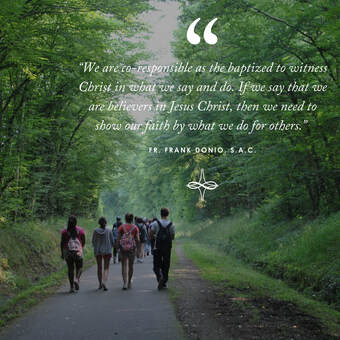 As the pandemic eases in the United States and much begins to reopen, we have the opportunity to reflect on where we have been as Church and what we are called to do. Many are still suffering around the world and in the U.S. from the effects of the pandemic. This moment is a unique one to revive faith and rekindle charity as apostles of Christ. The Dogmatic Constitution on the Church of the Second Vatican Council, Lumen Gentium, reminds us: “The holy people of God shares also in Christ's prophetic office; it spreads abroad a living witness to him, especially by means of a life of faith and charity and by offering to God a sacrifice of praise, the tribute of lips which give praise to his name” (12). We are co-responsible as the baptized to witness Christ in what we say and do. If we say that we are believers in Jesus Christ, then we need to show our faith by what we do for others. Seems easy. It is not, as we know. We cannot go about it alone. We need the grace provided by Christ, particularly in the Sacraments, especially the Eucharist. This is why livestreams of Mass are not enough. We need to receive Christ in the midst of the community of faith, the Church, and then strengthened by him and the community, we can go forth in his name, doing his mission. What an amazing responsibility we have! To live it well, we must be living witnesses of Christ. Pope Francis invites us, in line with the exhortation of many saints, to take it a step further: “Do not be afraid to set your sights higher, to allow yourself to be loved and liberated by God. Do not be afraid to let yourself be guided by the Holy Spirit. Holiness does not make you less human, since it is an encounter between your weakness and the power of God’s grace. For in the words of León Bloy, when all is said and done, ‘the only great tragedy in life, is not to become a saint’” (Gaudete et Exsultate, 34). May the Charity of Christ urge us on!
Over the course of this past year, we have had many opportunities to lose hope. Friends and family became ill, we could not enjoy a common handshake or hug, loved ones died, churches, schools, and recreational activities were shuttered, and we were required to keep distant from each other. In such circumstances, it is easy to feel low, to feel alone, and to feel as though better times are not on the way. Yet, the saints we honor on this day teach us the exact opposite – in the darkest of times, that is when hope is most needed. By clinging to hope, one can get through any hardship. St. Thomas More (1478-1535) is probably one of the most well-known English Catholic saints. The quote, “I die the King’s good servant, and God’s first,” is attributed to him and typically serves as the basis for many a reflection on faithful citizenship. He was also a prominent humanist and counted the great Erasmus as a friend. More famously refused to acknowledge Henry VIII as head of the Church of England, leading to More’s imprisonment and eventual execution. While awaiting his trial, More composed his final work, A Dialogue of Comfort against Tribulation. He begins by stating that while some things can ease tribulation, like medicine, the most effective comfort is faith given by God. Because of faith, one can persevere through any trial encountered. He notes that one’s time on earth is fleeting compared to eternal life afterwards. Thus, one should live life striving to attain the rewards of heaven rather than those on earth. St. John Fisher (1469-1535) is perhaps less well-known to contemporary Catholics. However, in his own time, many considered him not only the greatest preacher but also the greatest theologian in all Europe. He served as the bishop of the Diocese of Rochester and chancellor of the University of Cambridge. Fisher defended Queen Catherine of Aragon when Henry VIII attempted to divorce her. He also refused to acknowledge Henry as head of the Church and paid the price of imprisonment and execution. Just before Fisher’s trial, Pope Paul III named him a cardinal. Asked to preach at the funeral of King Henry VIII’s father, Henry VII, Fisher began by declaring, “Let no man think that my intention is to praise him for any vain transitory things of this life.” The bishop went on to say that great wealth and power do not ensure eternal life. Rather, Fisher said, “The cause of this hope was the true belief he had in God, in his Church, and in the Sacraments thereof.” By holding strong to his faith in the merciful God, Fisher stated that Henry VII left this world in peace hoping to see his heavenly reward. It is easy to admire the great convictions of the great people of the past. It is much harder to match that same zeal. Pope Francis reminds us that prayer is “a sacred fire in us too, which burns continually and which nothing can extinguish.” Therefore, by working little by little, day by day, we can grow in faith and, thus, grow closer to God. And as we come closer and closer to Him, then no matter what may be going on around us, no matter the discouragement that may afflict others, no matter the tribulation, we can remain anchored in the hope that comes from God alone. To learn more about the saints, please visit our Catholic Feast Days page. For more resources on COVID-19, please click here. Being a dad is heroic stuff. It demands strength, hard work, a quick wit, a compassionate heart, and an unwavering commitment to the health and well-being of this cute little stranger that has captured your heart. Being a dad is usually intentional. Being an adoptive dad is intentionality on steroids. If all men look to St. Joseph as a guide, companion, and mentor, we will have a more just, prosperous, and peaceful world. While I am writing this reflection for all dads, I want to address young dads or men who are thinking about being dads. My hope is that St. Joseph will awaken in you a clear-eyed grasp of the “fiat” or “yes” of fatherhood. Let me share where I am coming from. I am an adoptive dad with three sons; the oldest is married with three kids of his own, the middle son is headed to college, and the youngest will be a high school junior in the fall. A life-long Catholic, my professional life is in the Church: campus ministry, priestly formation, and mission. Barb and I, married 23 years, wrote a book a few years ago – Rise, Take the Child – Reflections on the Vocation of Adoption. Joseph was an “in the background” saint to me until I became an adoptive dad. In my office, I have an icon of the Holy Family. Our oldest was baptized on the Feast of the Holy Family. In that icon, Joseph is holding Mary (on his right) and Jesus (on his left). He is holding Mary, who is holding Jesus, and he completes the “embrace” of Jesus. Who is this “third person” in the Holy Family? I wanted to encounter Joseph the man. I examined my assumptions. I thought of Joseph as an old man even though biblical evidence suggests he was a strong man, capable of protecting his family, leading them into exile in Egypt and back home, and establishing himself as a successful carpenter. There is nothing “romantic” about Joseph if Shakespeare’s Romeo is our model of a man in love. I find Joseph, in Franco Zeffirelli’s film Jesus of Nazareth, is authentically conflicted; balancing the longing for the completion of marriage, his desire for Mary, the promise of family, the hurt and anger he feels when he learns Mary is pregnant, and his deep desire to do good and avoid evil. Finally, contrary to Joseph’s Song, which I like in many ways, Joseph was not a “simple” carpenter. In the time of Jesus, and even in our time, a carpenter is much more than a laborer. Carpenters were craftsmen – highly skilled and “essential” for society. Some, perhaps even Joseph, were artists. When we pray with Saint Joseph, we need to see him first as a man with his own story, network of relationships, aspirations, work, skill, and deep, abiding faith. This is Joseph, Mary’s tender and loving betrothed, a fierce and decisive protector, a skilled and dedicated provider, and a humble and faithful father who raises Jesus, with Mary, into manhood in first century Galilee. We know the most about Joseph from the Gospel of St. Matthew, which records his four dreams. In his first dream, Joseph “wrestles” with what the law of his faith teaches and what his heart says. Fatherhood is born out of love of a woman. Heterosexual men “long for” the completion a woman provides. This sexual longing (eros) finds its perfection in self-sacrificing love (agape). Joseph does not ignore Mary’s pregnancy – he embraces it as an act of faith and love. He sets aside his fears, welcomes her into his home as his wife, and witnesses God’s saving act unfolding in and through her. His second dream compels Joseph to protect the Mary and the infant Jesus from Herod. Mary, in Luke’s Gospel, “makes haste” to visit her cousin, Elizabeth. Joseph, in St. Matthew’s Gospel, “makes haste” at night into an unknown exile to Egypt, away from the threat of Herod. I am sure there were other dangers on the way to Egypt and challenges in finding work and establishing a home there. There is far less drama in the third dream. Joseph was able to hire himself out as a skilled craftsman and establish a home in Egypt. And yet, he is called by God to help write the great “theo-drama” of salvation so that Jesus, his adoptive son, can fulfill his destiny as God’s “only begotten Son” who is “called out of Egypt.” In some ways, this is Joseph’s “fiat,” his “yes” to God. Through his actions, Joseph accepts the responsibility of raising Jesus as a Jewish man among his people. The fourth dream, on the road home, points to Joseph as provider – choosing a place where Mary and Jesus would be safe, where Jesus could grow “in wisdom and age,” and he could provide for them through the work of his hands. St. Luke’s Gospel points to the peace and tranquility of this domestic time (sometimes referred to as the “hidden life”) for Joseph when he tells the story of Mary and Joseph finding Jesus in the Temple. Imagine the frantic search for Jesus followed by Joseph seeing and hearing his son teaching the elders of Israel in the Temple, the most sacred place on earth. Imagine the rush of emotions – the relief, the wonder, the astonishment. As I prayed with this passage, I was reminded of my experience of my own son playing basketball. He was about ten or eleven years old, he was fouled, and he cautiously approached the free-throw line. He took command of the ball, set his body, and did a perfect shot. Nothing but net. It took my breath away. Others too. We just did not expect “perfection” from someone so young. Was that what Joseph felt when he heard Jesus teaching the elders of Israel in the Temple? In many ways, every father is called to be an “adoptive” father in the sense that they, too, must be intentional, like Joseph, in how they love their children. First, love your wife and partner with her to be a family. Protect her and your children from all that is evil with your strength, perseverance, and decisiveness. Provide for your family through your labor, your craftsmanship, your artistry. And raise your children to adulthood through the witness of your life, integrity, and faith. Pope Francis declared 2021 the Year of St. Joseph, and he wrote a wonderful apostolic letter, Patris Corde (With a Father’s Heart), that provides further insights into this ordinary hero, this extraordinary “every man,” who raised to manhood the Messiah, the Son of the Living God. Click here to read more about St. Joseph in this post written by Barbara and Don McCrabb.
It is rare to find a moment of silence in a household with a two-year-old. Last week, unusually, provided many quiet moments as my normally energetic daughter had a high fever and spent the day on the couch or sleeping only while being held. My wife and I took turns silently holding her to help her get much needed rest. Sitting in silence—without a phone or other distraction--was agitating at first. As the time went on, the simple time spent in silence holding a sleeping child became nourishing and awakened in me a hunger for silence that I often spend time avoiding. This past Lent, I co-led an online small group for newly married men in DC. As we reflected on how the life of St. Joseph relates to us as men, we returned almost weekly to the challenge of finding silence amid phones and families. St. Joseph was not a character that most of us had taken seriously before being married or becoming a father. Yet in marriage and fatherhood, Joseph is the silent role model we need. Someone who understands us and who inspires us. St. Joseph was not a loud or flashy saint. In the children’s books of saints we have for our daughter, the life of silent St. Joseph is hardly mentioned. How can he compete with traveling missionaries, miracle workers, religious founders, and the stories of martyrs losing their heads, eyes, and more? Though his life was not extroverted or bloody, it was no less meaningful. The life of Joseph was a life of daily martyrdoms and silent missions. Without having to leave his home or his workshop, he set out each day as a missionary to offer his life for Jesus and Mary. This is reassuring to me as a husband and father of a toddler, who has been stuck at home during the last 12 months during the COVID pandemic. It is tempting to think that the only way to be holy is to be on the move or to be noticed, like the many Catholic social media influencers or popular Catholic priests or bishops. St. Joseph reminds us of a quieter, ordinary path to holiness that will earn us no new likes or followers. He shows us a hidden, silent example that we need in the noise of daily life. Joseph’s silence teaches us to rediscover the silent mission work found in our own kitchens and living rooms. The artist and Oblate Brother Mickey McGrath has a beautiful image of “St. Thérèse Doing the Dishes.” In the painting, Thérèse is at the kitchen sink elevating a plate as the priest elevates the Eucharist at the altar. This image makes plain our mission as lay men and women to unite our daily work and sacrifices to the great sacrifice of Jesus on the cross which we commemorate at each Eucharistic celebration. Perhaps this image of St. Thérèse doing dishes stands out today because our dishwasher broke this week and my mission field has been researching dishwasher pumps and motor assemblies and spending extra time in soapy water. The image reminds me that God has called me to this mission, regardless of whether it is my preference or how qualified I feel for the task. Joseph must have felt the same way in the ordinary tasks of his workshop and home. St. Joseph is a role model for how we are called to integrate our lives, finding God in every moment of our day—whether doing dishes, praying the Rosary, updating spreadsheets, or building a table. In the life of Joseph, daily work “is a kind of prayer, a way of finding God, a means of salvation…Joseph gave to his carts and yokes the same care he would have given to a tabernacle, since he understood perfectly that a word done in love goes straight to God” (Michel Gasnier, Joseph the Silent, 29). Pope Francis reminds us that, “working persons, whatever their job may be, are cooperating with God himself, and in some way become creators of the world around us” (Patris Corde, 6). St. Joseph is well known for not having a single word recorded in Scripture, but we cannot confuse his silence with a lack of mission. Joseph was a silent missionary who invites us in this Year of St. Joseph to join him in the quiet work. The silent mission of holding a sick child who has fallen asleep, of holding our tongue from an uncharitable word with a family member or colleague, of doing the dishes, or of going about our work with love. Silently. Without recognition. Like St. Joseph. On John Prine’s 1971 debut album, there is a powerful song called ‘Paradise’. The narrator of the song describes an idyllic town in Eastern Kentucky called Paradise. A coal company comes in with “the world’s largest shovel” and begins to dig for coal. It torches the land while calling it the “progress of man.” The son of the narrator asks his father if he will take him to visit Paradise. The father delivers the sad news to his son that they are too late, “Mister Peabody’s coal trains have hauled it away.” As a kid from Scranton, the capital of Pennsylvania’s coal country, I grew up seeing firsthand the damage this kind of “progress of man” can do after decades of coal mining. The landscape and its people have been forever scarred by the unchecked desire for profit. One can see the physical damage, such as piles of coal ash and mine waste, or the collapse of mine shafts that affect buildings and roads. There is not just physical damage, but there are also significant health issues that still threaten residents of coal country. This is just one small example of how environmental issues can impact so much. These issues of care for the environment and care of people are at the very heart of what we should be celebrating Earth Day, which occurred last week on April 22nd. It is a celebration of not just all the great and wonderful gifts our planet has given to us, but of its people too. As we emerge from the Covid-19 pandemic and begin to remove our masks from our mouth and nose, we have the opportunity to remove the mask from our eyes and hearts to the plight of the planet and its inhabitants. Pope Francis offers a fresh view of how we can interact with our natural world in his encyclical Laudato Si'. Drawing inspiration from his namesake and building off the foundations of his papal predecessors, the Holy Father calls on all of humanity to integrate the care for creation into all aspects of our lives. We must do so with our economies, our faith life, our politics, and our daily life. He calls on us to recognize society’s role in the denigration of our environment and to begin the process of healing the earth. He says we can do this by advocating for the poor who are disproportionately affected by climate change, improve the goals of our economies, and take political and personal action to repair the damage done. Pope Francis reminds us that this is all at the heart of our faith. Our love and care for the other must include the environment that our neighbor lives in too. One of the most striking aspects of this wonderful document, to me, is how deeply Pope Francis ties to our faith this cause of care. He says that this kind of care demands a change of hearts. We must reevaluate our daily lives to see what we can do to improve our earth. Some actions can be as simple as making sure that we are turning off the lights, while others require massive societal change such as the move away from fossil fuels, but both are important. Both can be achievable if we can commit ourselves to each other and to our earth. God will guide us to this grace, for it is through God alone that we can achieve our goal. “God, who calls us to generous commitment and to give him our all, offers us the light and the strength needed to continue on our way. In the heart of this world, the Lord of life, who loves us so much, is always present. He does not abandon us, he does not leave us alone, for he has united himself definitively to our earth, and his love constantly impels us to find new ways forward. Praise be to him!”-Laudato Si', 245 For more resources on Laudati Si', please click here. As we continue through this “Year of St. Joseph” as proclaimed by Pope Francis in his Apostolic Letter Patris Corde, one cannot help but reflect on St. Joseph: adoptive father of Jesus, spouse to the Blessed Virgin Mary, and Patron of the Universal Church. These lofty and impressive titles have been given to a man who in many respects is seen as humble, consistently in the background, and having no words come from his mouth in Scripture. His example of what it means to be a man and a father is one men can strive for.
As a father of a precocious one-year-old, I cannot help but look for examples of how to be a father. Of course, we often look to our own fathers, grandfathers, friends, and perhaps even godfathers and spiritual fathers through the priesthood. There are many qualities that we can emulate from these father figures in our lives, indeed very practical ones. How to change diapers without a mess; how to look good while carrying an undersized backpack filled with wipes, pacifiers, and a change of clothes; or at what posture to best steer that not-tall-enough stroller? What prayers should we be introducing to our young family? How can we strive to provide for our child both practically and spiritually? However, I would suggest another figure to look to: St. Joseph. When my son was baptized, a friend of ours – who happens to be named Joseph – gifted to him (and to us) a statue of St. Joseph. At the time, I considered it more of a funny coincidence, and a nice gesture. As I continued to reflect on it, I really began to see it as providential. Admittedly, as a new father, I was scared and anxious (I still am). St. Joseph undoubtedly faced many of the same anxieties. However, throughout Scripture he is portrayed as a man who sorts out problems and comes up with solutions in practical and brave ways. It is this particular quality that I think we, as fathers, should take as a noble example. There will be times throughout our fatherhoods when we will come to face challenges, confusion, and doubt. St. Joseph protected the Holy Family and trusted in the word of God when it was easy not to trust. As fathers we are called to protect our own families, not necessarily always from harm or danger, and also to provide an example of kindness, love, and humility that so often is characterized as weak. Instead, I invite you to seek St. Joseph’s noble example and see these qualities as a strength. We also need to trust in God. Pope Francis says in Patris Corde, “The greatness of Saint Joseph is that he was the spouse of Mary and the father of Jesus. In this way, he placed himself, in the words of Saint John Chrysostom, 'at the service of the entire plan of salvation.'” Let us as fathers follow in St. Joseph’s noble example to place ourselves at the service of God’s plan for us. Then we will truly be able to serve our families without fear or anxiety. For more on St. Joseph, read our blog post: “Ite Ad Joseph: 10 Quotes to Celebrate the Year of St. Joseph.”
I’m not much of a poetry person. I did what I could to avoid it in middle and high school, as well as college. But there is one poem that I like—in fact, that I love. It goes like this:
“Hope” is the thing with feathers -
That perches in the soul - And sings the tune without the words - And never stops - at all - And sweetest - in the Gale - is heard - And sore must be the storm - That could abash the little Bird That kept so many warm - I’ve heard it in the chillest land - And on the strangest Sea - Yet - never - in Extremity, It asked a crumb - of me.
That is “Hope is the Thing with Feathers” by Emily Dickenson. I always liked the poem, the way it rhymes and the way it rolls off the tongue. It became even more important to me when my father became ill. I clung to this poem because it reminded me that hope is always with us; that even in the greatest storm, hope remains and remains without ceasing.
As Christians, we cling to hope. This season of Lent which we find ourselves in right now is a period that prepares and leads us to that ultimate instance of hope in the Christian life: the Resurrection. Much like the hope that Dickenson writes of in her poem, the hope of the Resurrection remains with us at all times. It never stops, it remains with us in our souls, and it is, if I may create a word, “unabashable.” The thing is, it can be hard to see this hope in our lives, regardless of its unceasing presence. Pope Francis dedicates two paragraphs of Fratelli Tutti to the virtue of hope. He writes: Hope speaks to us of a thirst, an aspiration, a longing for a life of fulfillment, a desire to achieve great things, things that fill our heart and lift our spirit to lofty realities like truth, goodness and beauty, justice and love… Hope is bold; it can look beyond personal convenience, the petty securities and compensations which limit our horizon, and it can open us up to grand ideals that make life more beautiful and worthwhile” (Fratelli Tutti, 55). Hope transcends our ups and our downs, our individual trials and tribulations, not because they are insignificant, but because the Resurrection, in the end, is greater than every one of those. The hope of the Resurrection doesn’t minimize our trials, or even our personal convenience and petty securities, but it is the light which illuminates the darkness and allows us to move past them on our journey with Christ. The hope of the Resurrection, the hope of Christ perches in our soul and it sings the tune of Alleluia (pardon my use during Lent) without ceasing. This hope, much like the little bird that Dickenson describes, is in fact sweetest in the gale, in the storm, because we are called to recall that Jesus Christ will provide for us in ways that no other person or thing ever can. In the midst of Lent, much like through all of our sufferings, hope can be heard as a melodious tune above the groans of those trials which we face. May we look to hope, the thing with feathers, the Resurrection, this Lent and always. For more resources to accompany you during your Lenten journey, please click here.
|
Details
Archives
April 2024
Categories
All
|
About |
Media |
© COPYRIGHT 2024 | ALL RIGHTS RESERVED

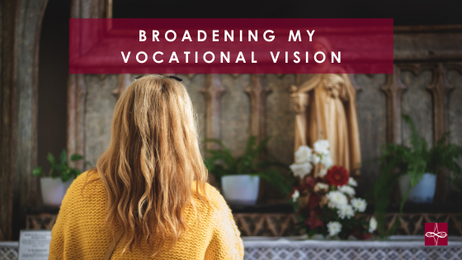

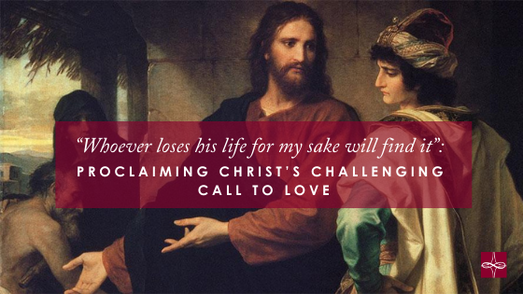

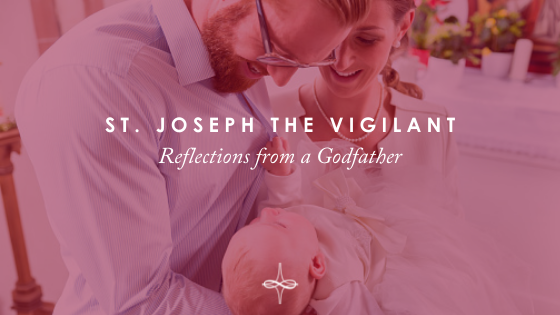
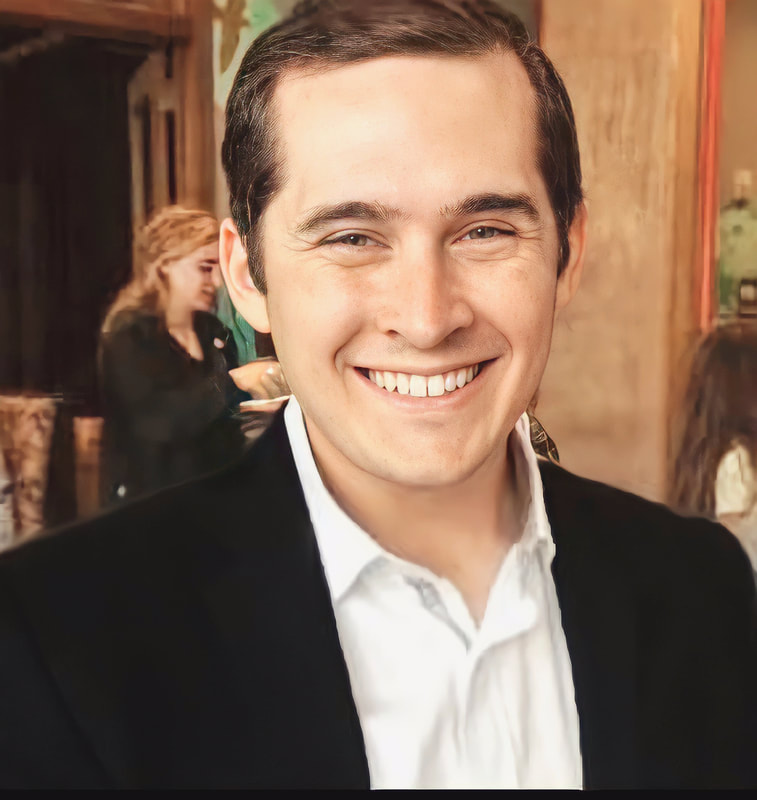





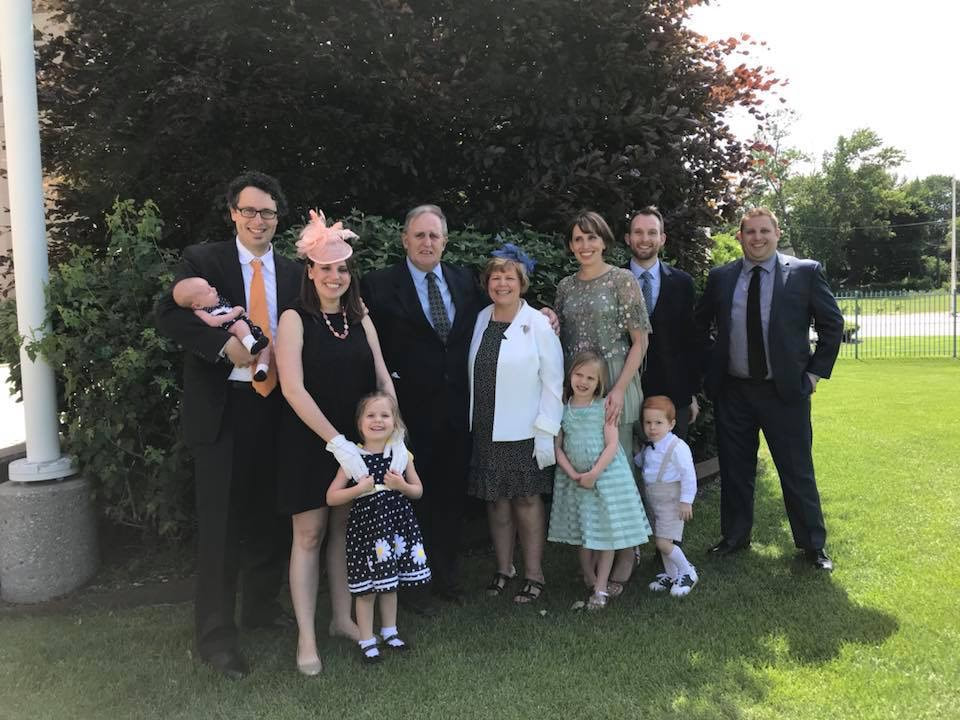

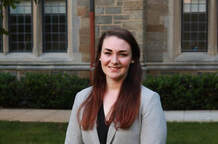

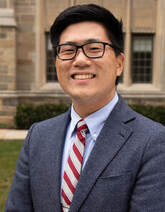
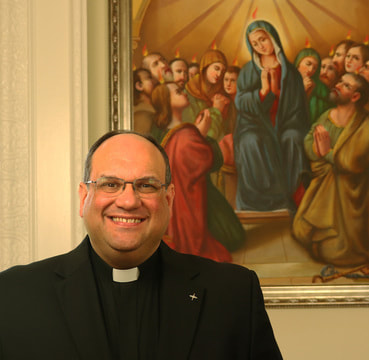
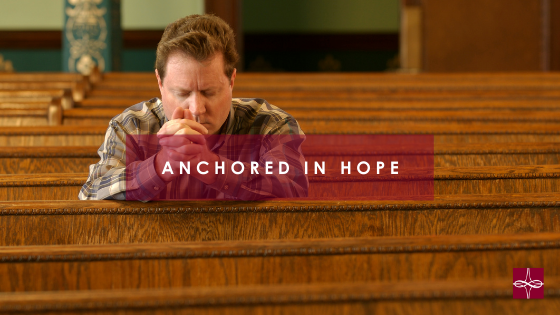



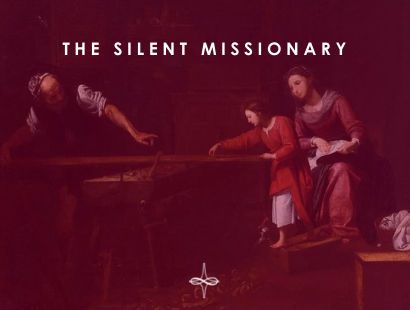


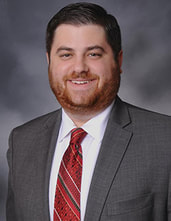
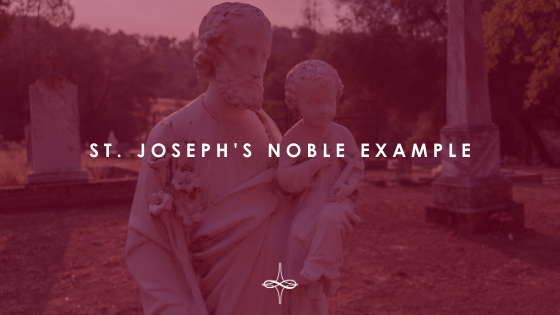


 RSS Feed
RSS Feed